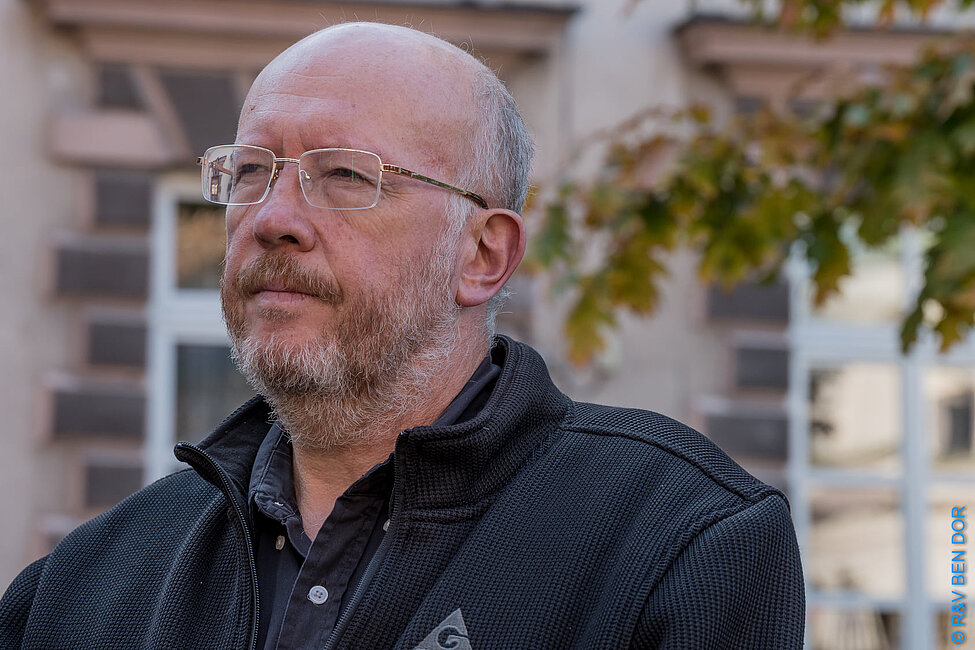The article shows that the English-language Wikipedia, the world’s largest encyclopedia, whitewashes the role of Polish society in the Holocaust and bolsters stereotypes about Jews – can you give some examples on how this is being done?
– In the article we argue that the English Wikipedia, in its coverage of Jewish-Polish relations during the Holocaust, disseminates anti-Jewish tropes, distorts and falsifies historical record and legitimizes fringe authors in order to support the vision of the past espoused by Polish nationalists. For instance, as we argue, Wikipedia articles tend to grossly inflate the numbers of Poles allegedly rescuing the Jews during the war, while downplaying or dismissing the phenomenon of betrayal and murder of Jews at the hands of their Polish neighbors. Furthermore, Wiki articles stress the importance of the alleged Jewish collaboration with the Nazis and engage in victim-blaming while insisting on the alleged Jewish cooperation with the Bolsheviks, fueling the well-known tropes of “Judeocommune”. Post war pogroms in Poland are being explained as Soviet provocation and not as an expression of homegrown antisemitism. These are just some of the issues identified in the article. The coverage of the Holocaust in Poland on the English Wikipedia seems to dovetail with the policy of distortion of history led by the Polish nationalist authorities.
– The second part of our text shows that this falsification of historical record is being done by a handful of senior Wikipedia editors, people – most likely – with an ideological axe to grind. Bypassing and abusing Wikipedia’s internal regulations this small group of “distortionist Wikipedians” - as we call them - base their edits of texts on materials which have little or no academic value and, acting as a group, they overwhelm and intimidate other Wikipedia editors who try to restore some balance to the narrative. They try to legitimize fringe scholars, or even people recognized as Holocaust deniers, while putting to question the academic reputation of some of the best known and most respected scholars in the field of Holocaust studies. The results are all but frightening: in the analyzed sample of articles, five to ten people are able to control, distort and falsify the content of articles being read, on monthly basis - by hundreds of thousands of people. Our article has been published in The Journal of Holocaust Research six weeks ago as a free-access publication. Since then it has been viewed more than 36,000 times. For an academic publication, these are numbers which testify to the interest raised by my and my co-author Shira Klein’s publication.
How important is Wikipedia as a digital encyclopedia today?
– Wikipedia is arguably the most frequently used source of quasi-encyclopaedic information. I would say “quasi” because the articles in Wikipedia are not vetted by experts. Nevertheless, as we write in the introduction to the article:
“Wikipedia is the seventh most visited site on the internet, with 7.3 billion views a month. Its articles show up in over 80 percent of the first page of search engine results and over 50 percent of the top three results. Browser searches yield more links to the English-language Wikipedia than to any other website in the world, and Wikipedia predominates in knowledge panels, the information boxes that show up in Google searches, which are visible to users without scrolling. Multiple websites mirror Wikipedia’s content and students read it for their college papers; indeed, even judges rely on Wikipedia to rule on cases”.
Has there ever been a settlement with, or recognition of, antisemitism in Poland at the state level or within the Catholic Church?
– Not really. While scholars agree that antisemitism has been and continues to be a potent force in Polish political and cultural life, the Polish officialdom – and the Church - either altogether deny the existence of the phenomenon, or present it is a fringe issue, without broader social ramifications. Since the nationalistic takeover in Poland in 2015, the Roman Catholic Church - the hierarchy - and the authorities work hand in hand in order to promote this pernicious historical fallacy.
Which themes in the historiography of Poland and the Holocaust are particularly sensitive in today´s academic and political debate?
– The most explosive issue deals with the Holocaust, or – to be more precise – with the extent of involvement of the Polish society in the German genocidal project. The publication of Jan T. Gross’ “Neighbors” - a book which described the mass murder of Jewish inhabitants of a town called Jedwabne at the hands of their Polish neighbors - in 2000, triggered a national debate and much soul-searching. Eventually, and with the massive help of the state-funded “memorial” institutions, the forces of denial gained the upper hand.
Today, the official Polish state-approved and state-enforced historical narrative is a prime example of negationism, which does not deny the factuality of the Jewish catastrophe but which insists that the own nation, the own group, had nothing to do with the event.
Seminar
On the 4th of May,Prof. Jan Grabowski and Dr Shira Klein will hold a seminar: "Wikipedia´s Intentional Distortion of the History of the Holocaust". More information: https://www.hist.lu.se/historia/kalendarium/evenemang/hogre-seminariet-jan-grabowski-och-shira-klein-wikipedias-intentional-distortion-history-holocaust/

